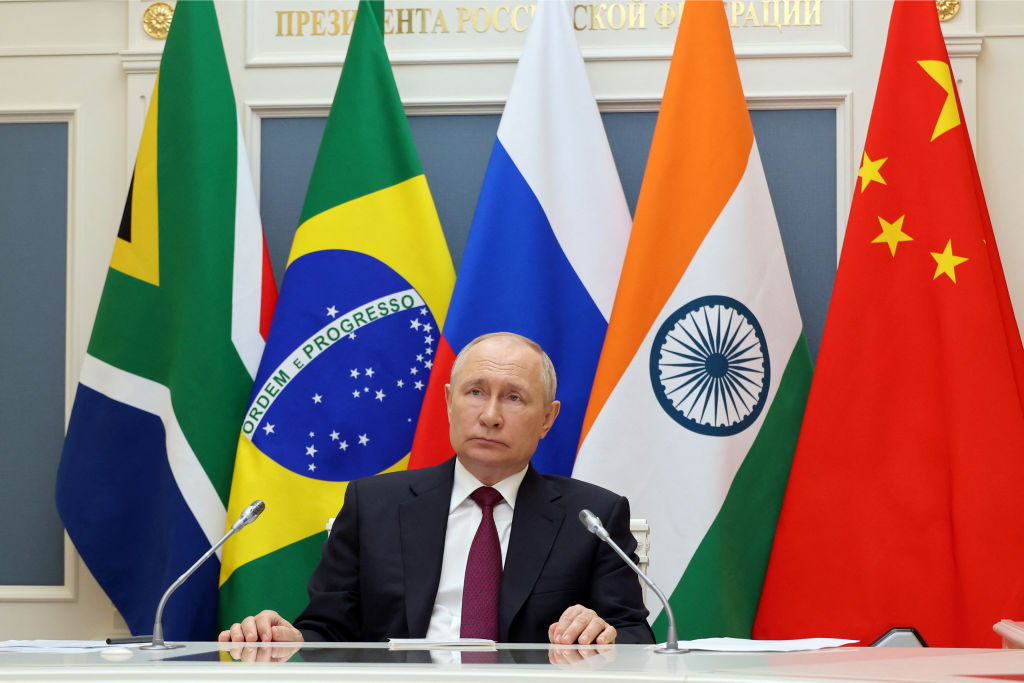This week’s Brics summit in Kazan, Russia, will attract significant attention, but whether it yields any meaningful results is uncertain. The summit will host leaders from 24 countries, along with delegations from a total of 32 nations, marking it as one of the most significant multilateral foreign policy events Russia has organized since the 1945 Yalta Conference. The event is taking place against the backdrop of the ongoing conflict in Ukraine, further highlighting its significance.
Currently, the Brics grouping includes nine member states: Brazil, Russia, India, China, South Africa, Egypt, Iran, Ethiopia, and the UAE. Russian President Vladimir Putin claimed that 34 additional countries are interested in joining the bloc, although initial statements regarding Saudi Arabia becoming the 10th member have since been retracted. It’s unclear whether Saudi Arabia will participate, which may suggest a decline in the group’s overall appeal and influence.
While the summit can enhance Russia’s global standing among a certain crowd, equating Brics to Nato, as some have done, is an exaggeration. The cohesion among the nations stems from their collective commitment to national sovereignty rather than a shared purpose. Instead of transferring power to a supranational body, these countries are likely to reinforce their autonomy. Even the anticipated goal of establishing an alternative payment system to challenge the US dollar reflects a desire to safeguard national sovereignty from external pressures, including from each other. However, as member states of the EU understand, creating a unified currency is impossible without some concessions of sovereignty.
The relationships between Brics member states, such as the rivalry between China and India, or the perception of Iran as a threat by Saudi Arabia and the UAE, complicate any collaboration. This dynamic is evident when looking at Riyadh which — privately, at least — supports Israel against Iran. India and China also face unresolved territorial disputes along their Himalayan border, particularly around the Aksai Chin plateau and Arunachal Pradesh. Recent escalations raise concerns about potential military confrontations, as control over these resource-rich areas could provide a strategic edge to either nation, especially given their shared challenges related to water scarcity. What’s more, the Himalayan region is a critical trade route for Beijing, adding to India’s security concerns over potential Chinese military encirclement. Despite the recent announcement of de-escalation, it still remains to be seen how the countries will carve up the contested territory and distribute the resources.
These complex dynamics diminish the likelihood of a new currency replacing the dollar, and a shift away from Western economic dominance is far off. India and other countries have already rejected proposals for a new currency, realizing that it fulfills anti-American sentiment more than it would practically undermine the dollar.
Despite strong ideological motivations to replace the dollar, economic realities tell a different story. No single country or coalition currently possesses the economic capacity to absorb the trading surpluses essential for the growth of many developing nations, which often rely on weak domestic consumption. Brics nations may commit to using alternative commercial payment systems, such as the newly introduced Brics Pay app, and will likely explore mechanisms for trade in local currencies instead of dollars.
But the actual financial volume transacted through these systems is expected to be minimal. Token initiatives, such as forming working groups, could emerge, but substantial advancements toward a totally novel currency or a gold standard seem improbable, mainly due to resistance from Brazil and India, both of which do not view reliance on the Chinese yuan as beneficial to their financial or geopolitical interests.
This situation may lead Russia to rely on Chinese financial systems, such as the Cross-Border Interbank Payment System — China’s equivalent of Swift — to counterbalance its vulnerability to sanctions. That said, China is not currently prioritizing the dismantling of the dollar-based global financial system, which it still relies on for selling essential exports.
Though the Kazan summit is an opportunity for the Brics nations to convey a message of anti-Western diplomacy, its actual significance is likely to be minimal. The true challenge for Brics will emerge during and in the aftermath of the US election, as its appeal has partly been a response to perceived weaknesses in Joe Biden’s foreign policy. A return to Donald Trump’s “peace through strength” approach could entice many countries interested in Brics back into the US-led international order.











Join the discussion
Join like minded readers that support our journalism by becoming a paid subscriber
To join the discussion in the comments, become a paid subscriber.
Join like minded readers that support our journalism, read unlimited articles and enjoy other subscriber-only benefits.
Subscribe